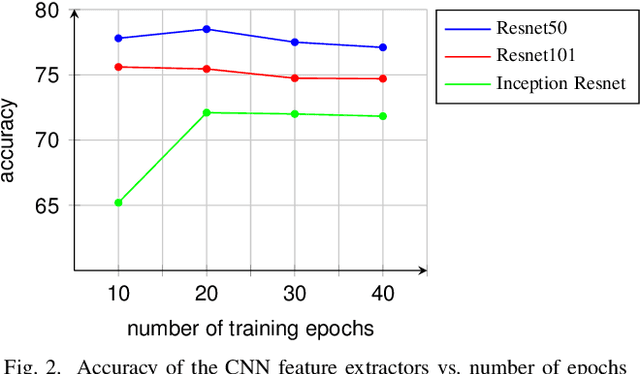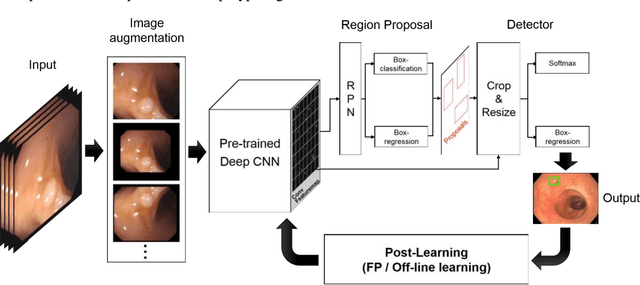Lars Aabakken
Polyp Detection and Segmentation using Mask R-CNN: Does a Deeper Feature Extractor CNN Always Perform Better?
Jul 22, 2019



Abstract:Automatic polyp detection and segmentation are highly desirable for colon screening due to polyp miss rate by physicians during colonoscopy, which is about 25%. However, this computerization is still an unsolved problem due to various polyp-like structures in the colon and high interclass polyp variations in terms of size, color, shape, and texture. In this paper, we adapt Mask R-CNN and evaluate its performance with different modern convolutional neural networks (CNN) as its feature extractor for polyp detection and segmentation. We investigate the performance improvement of each feature extractor by adding extra polyp images to the training dataset to answer whether we need deeper and more complex CNNs or better dataset for training in automatic polyp detection and segmentation. Finally, we propose an ensemble method for further performance improvement. We evaluate the performance on the 2015 MICCAI polyp detection dataset. The best results achieved are 72.59% recall, 80% precision, 70.42% dice, and 61.24% Jaccard. The model achieved state-of-the-art segmentation performance.
* 6
Automatic Colon Polyp Detection using Region based Deep CNN and Post Learning Approaches
Jun 27, 2019



Abstract:Automatic detection of colonic polyps is still an unsolved problem due to the large variation of polyps in terms of shape, texture, size, and color, and the existence of various polyp-like mimics during colonoscopy. In this study, we apply a recent region based convolutional neural network (CNN) approach for the automatic detection of polyps in images and videos obtained from colonoscopy examinations. We use a deep-CNN model (Inception Resnet) as a transfer learning scheme in the detection system. To overcome the polyp detection obstacles and the small number of polyp images, we examine image augmentation strategies for training deep networks. We further propose two efficient post-learning methods such as, automatic false positive learning and off-line learning, both of which can be incorporated with the region based detection system for reliable polyp detection. Using the large size of colonoscopy databases, experimental results demonstrate that the suggested detection systems show better performance compared to other systems in the literature. Furthermore, we show improved detection performance using the proposed post-learning schemes for colonoscopy videos.
* 9 pages
 Add to Chrome
Add to Chrome Add to Firefox
Add to Firefox Add to Edge
Add to Edge